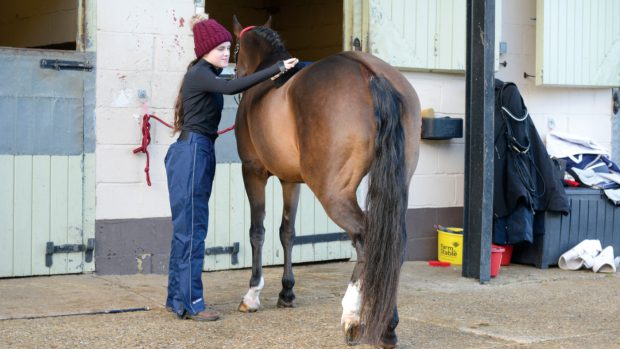Equine vets are concerned about the future of the drug ketamine, a popular anaesthetic.
The drug hit the headlines this week, as the World Health Organisation (WHO) Expert Committee on Drug Dependence met to review ketamine on Monday (16 November) — among drugs “with potential for dependence, abuse and harm to health”.
It will then make recommendations to the United Nations (UN) Secretary-General on the need for international control of these substances.
Ketamine has been in veterinary use since the early 1970s and is now probably the most widely used veterinary anaesthetic.
| Related articles |
“Ketamine has featured in the news over the past few years because it has become ever more popular as a recreational drug and causes harm to some of those who take it. In particular, it causes very nasty urinary tract injury, which occasionally necessitates major bladder surgery,” said vet Polly Taylor, an expert in veterinary anaesthesia.
“However, ketamine’s greatest role is as an anaesthetic; it is used throughout the world to provide anaesthesia and pain relief in both animals and people. It is particularly vital in horses and is now used globally for virtually every equine anaesthetic.
This is both for induction of anaesthesia before major surgery in a state-of-the-art equine hospital, as well as for short procedures ‘in the field’ such as castration of colts.
“Ketamine is also crucial for emergency treatment of horses injured or trapped in accidents; under these circumstances a reliable injectable anaesthetic is essential to ensure safety of personnel as well as the patient,” added Polly.
The WHO has consistently considered ketamine to be an essential medicine that should not be scheduled internationally — individual national control, as in the UK, is quite sufficient.
International scheduling would make it more difficult to obtain ketamine for medical and veterinary use.
“This would have the greatest impact on low and middle income countries who depend on ketamine for most of their anaesthesia.
However, if the UN opted for the strictest international schedule 1, the resulting restriction on access to ketamine would undoubtedly harm our equine patients throughout the world,” added Polly.
“Ketamine does far more good than harm.”
Don’t miss H&H’s vet pages on 10 December for more on ketamine.
Ref: H&H 19 November, 2015





